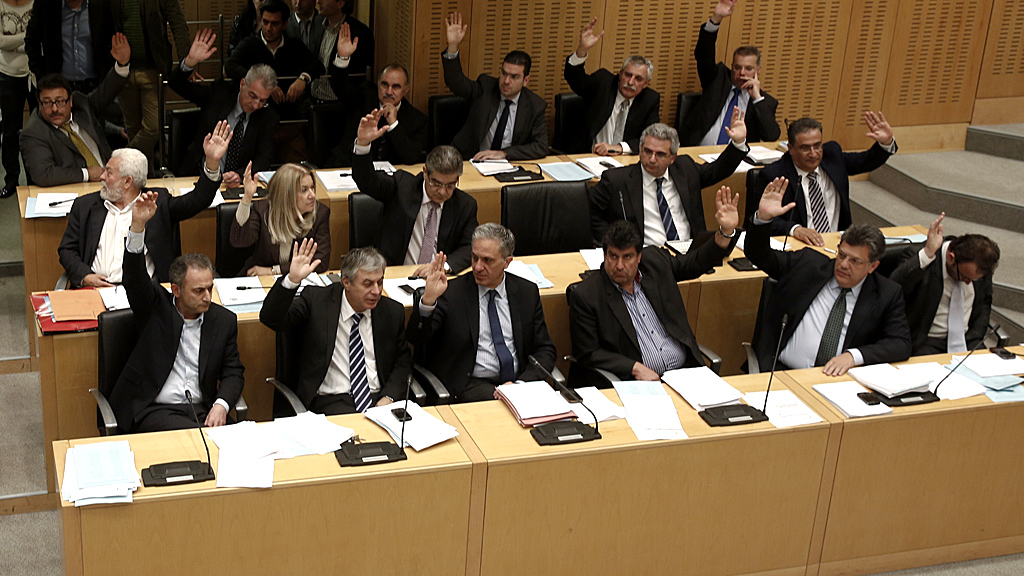Cyprus bailout bid goes down to the wire
The Cypriot President and party leaders are expected to travel to Brussels for talks with EU finance ministers as the island’s bid to avert financial collapse goes down to the wire.
Cyprus faces a Monday deadline to clinch a 10 billion euro bailout from the European Union or the European Central Bank will cut off emergency funding to the country’s stricken banks, spelling certain collapse and potentially pushing the island out of Europe’s single currency.
Lawmakers are expected to debate a possible levy on big depositors in Cypriot banks to help secure the 5.8 billion euros demanded by the European Union before it gives the nod to the bailout.
But with eurozone finance ministers due to meet on Sunday afternoon, a senior lawmaker in Nicosia said the island’s tiny legislature would wait until after the Brussels meeting to hold its debate.
“We will meet after the Eurogroup meeting, he said, speaking on condition of anonymity, “I don’t know when.”
A government official, who also declined to be named, said Cypriot officials were to hold talks with representatives from the so-called ‘troika’ of lenders – the EU, ECB and International Monetary Fund – on Saturday morning.
Read more: Cyprus bailout – the key questions
The official said President Nicos Anastasiades, barely a month in office and wrestling with Cyprus’s worst crisis since an invasion by Turkish forces in 1974 split the country in two, may head to Brussels on Saturday depending on the outcome of the troika talks, though formal meetings are not expected until Sunday.
Racing to placate its European partners, Cypriot lawmakers voted in a late-night session on Friday to nationalise state pensions and split failing lenders into good and bad banks. They also gave the government powers to impose capital controls on banks, anticipating a flood of money from the island when banks are due to reopen on Tuesday after more than a week of lockdown.

Tapping savers
Signalling a dramatic U-turn, officials said they were near agreement to tax deposits of over 100,000 euros in at least one Cypriot bank, having angrily rejected a similar measure on Tuesday branding it “bank robbery”.
The turnaround came after Russia rebuffed Cypriot entreaties to help its banks, where Russian citizens and other foreigners have billions of euros at stake.
Cypriots were enraged by plans to hit small holdings of ordinary savers as well as large accounts.
Many of the biggest depositors are foreigners, including rich Russians, and European politicians are loathe to spend taxpayers’ money on a bailout if the depositors take no losses.
Cypriot leaders, however, fear the damage the levy would do to the country’s offshore banking industry. The tottering banks hold 68 billion euros in deposits, including 38 billion in accounts of more than 100,000 euros – enormous sums for an island of 1.1 million people which could never sustain such a big financial system on its own.
Much of the banks’ capital was wiped out by investments in Greece, the epicentre of the euro zone debt crisis.
Party officials said that discussions were now centred on a 20 percent-plus levy on depositors holding over 100,000 euros, possibly only at the island’s biggest lender, Bank of Cyprus.
The plan to nationalise semi-state pension funds has, however, met with resistance, particularly from Germany which made clear that tapping pensions could by even more painful for ordinary Cypriots than a deposit levy.